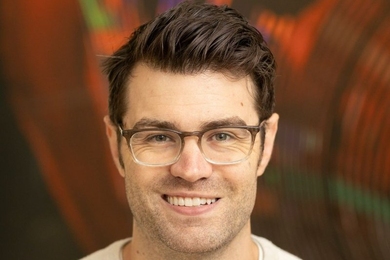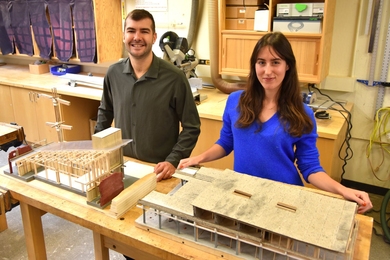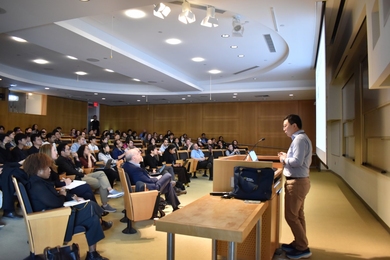The Isabelle de Courtivron Writing Prize is seeking student writing submissions (creative or expository) about immigrant, diaspora, bicultural, bilingual, and/or mixed-race experiences. The prize was established to honor distinguished Professor Emerita Isabelle de Courtivron, who dedicated her career at MIT to the study of bicultural and bilingual creative expression. The annual prize competition is open to all MIT undergraduates; this year the submission deadline is Feb. 20. More information is available at the Center for Bilingual/Bicultural Studies website.
The following is a brief Q&A with Eric Grunwald, chair of Isabelle de Courtivron Writing Prize and a lecturer in global studies and languages.
Q: What relevance do you think this writing contest has to MIT students?
A: Regardless of what career path students are on, they need to be able to express themselves clearly and logically and to be able to think critically about complex issues. And as William Zinsser put it, “Writing and thinking and learning are all the same process.” Whether you’re arguing for funding for your work, or teaching a class, or advocating public policy, you need to be able to logically build an argument. It’s almost certain that at some point in their career MIT students will have to explain their work or their research to experts or to a general audience. And when you have to write a detailed argument, it forces you to think more deeply and clearly.
Let’s also not forget that writing, whether it’s expository or creative writing, can unlock different ways of seeing things. Writing helps you figure out what you think or feel about something you think you know. One of my favorite quotations I like to share with students is from Albert Einstein: “If at first the idea is not absurd, then there is no hope for it.” Creative writing — and, just as much, freewriting for an academic paper — gives students the chance to let their imaginations take them where it will. I mean, we can’t imagine Einstein discovering relativity by just coloring within the lines. Writing allows people to discover what may be inside them that they didn’t even know was there or to work out their position on a complicated issue — more valuable than ever in our age of sound bites and tweets.
Q: Why does the writing prize focus on cross-cultural experiences?
A: MIT attracts students from different cultures both internationally and here in the U.S. These different cultures, these ways of seeing, have a lot to offer to everyone here at MIT, different ways of looking at life and at solutions to problems. It’s something that enriches our community but can get shunted aside or overlooked in the intensity of the MIT environment.
Q: You’re a lecturer in English language studies in the MIT Global Studies and Languages Section, but you’re also a published writer and translator. How does this inform your participation in the writing contest?
A: Well, as I said, I believe strongly that writing is a tool for thinking and for self-discovery. When I first started thinking about becoming a writer, I had been through some difficult times, and “Prince of Tides” by Pat Conroy and “Bright Lights Big City” by Jay McInerney moved me deeply and consoled me. They made me want to write and convey something from within me — even if I didn’t know exactly what it was.
Writing is something I get immense satisfaction from. It’s fun to create worlds, play with different characters and scenarios. You come out feeling more alive, more aware, more engaged in the world. I’m hoping that the writing prize might encourage others find that sense of, if not joy, at least satisfaction and discovery. I also think it’s very important that MIT students be encouraged to write and rewarded for it. I think we have a false dichotomy between, as we called them at Stanford, fuzzies and techies — i.e., humanities people and STEM people. But the ability to write is really a spectrum, and if you can speak you can write, and you can get better at it.
Q: What would you suggest to a student who wants to write a piece for the contest?
A: If it’s something you’ve already written, reread a clean copy from beginning to end without stopping, then think about how you might make it better. If you’re writing something new, sit down, turn off the censor and the judgement, and just write about an idea you have. Spit the whole thing out. Let it sit for a day or two and then go back and see what’s working and what you can or need to improve. Think about the questions you are exploring and what details you can include to portray or illustrate them. See if your perspective, your voice, comes through the writing in a vivid way, whether it’s a poem, a fictional story, a personal essay, or a research paper.









